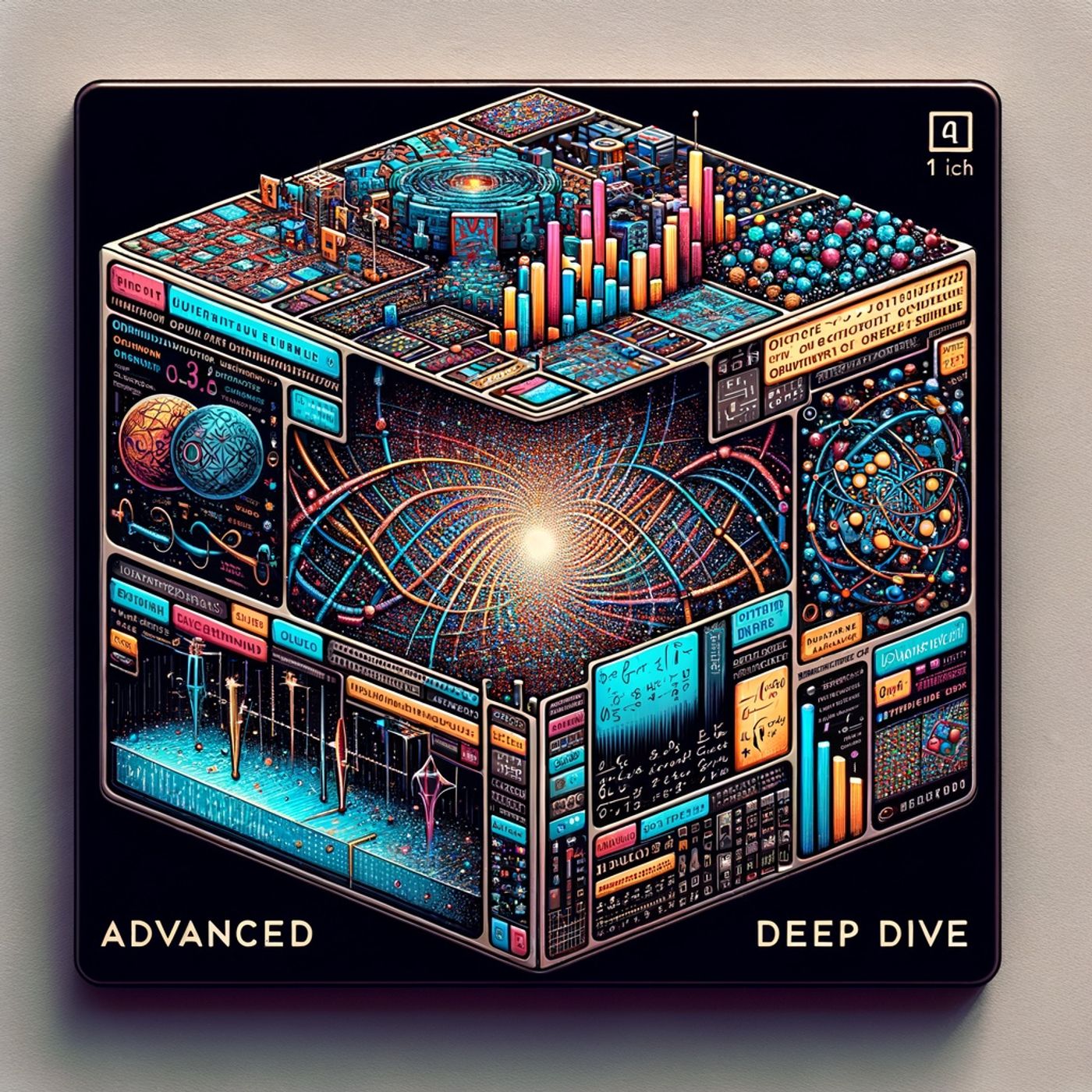Advanced Quantum Deep Dives

Advanced Quantum Deep Dives
Podcast Description
This is your Advanced Quantum Deep Dives podcast.Explore the forefront of quantum technology with "Advanced Quantum Deep Dives." Updated daily, this podcast delves into the latest research and technical developments in quantum error correction, coherence improvements, and scaling solutions. Learn about specific mathematical approaches and gain insights from groundbreaking experimental results. Stay ahead in the rapidly evolving world of quantum research with in-depth analysis and expert interviews. Perfect for researchers, academics, and anyone passionate about quantum advancements.For more info go to https://www.quietplease.aiCheck out these deals https://amzn.to/48MZPjs
Podcast Insights
Content Themes
The podcast covers a diverse array of topics within quantum technology, specifically focusing on quantum error correction methods, advancements in coherence improvements, applications of quantum simulations, and the potential for quantum computing in real-world applications. Recent episodes featured discussions on quantum simulators uncovering new insights into magnetic phase transitions and leveraging qubits as sensitive gravity sensors.

This is your Advanced Quantum Deep Dives podcast.
Explore the forefront of quantum technology with “Advanced Quantum Deep Dives.” Updated daily, this podcast delves into the latest research and technical developments in quantum error correction, coherence improvements, and scaling solutions. Learn about specific mathematical approaches and gain insights from groundbreaking experimental results. Stay ahead in the rapidly evolving world of quantum research with in-depth analysis and expert interviews. Perfect for researchers, academics, and anyone passionate about quantum advancements.
For more info go to
Check out these deals https://amzn.to/48MZPjs
This is your Advanced Quantum Deep Dives podcast.
Imagine this: photons dancing with atoms in a frigid optical cavity, refusing to warm up to each other’s rhythm, holding quantum secrets just a millisecond longer. That’s the electrifying hook from a University at Buffalo study released just days ago on January 21, 2026, revealing light-matter thermalization doesn’t happen as fast as we thought. I’m Leo, your Learning Enhanced Operator, diving deep into quantum realms on Advanced Quantum Deep Dives.
Picture me in the humming heart of a neutral-atom lab at night—laser beams slicing through ultra-high vacuum like sapphire scalpels, arrays of Rydberg atoms suspended in optical tweezers, glowing faintly under cryogenic chill. The air smells of ozone and liquid helium, a symphony of whirs from vacuum pumps syncing with the pulse of control electronics. This is where quantum dreams flicker to life.
Today’s standout paper? “New insight into light-matter thermalization could advance neutral-atom quantum computing,” led by Jamir Marino at Buffalo. They simulated Rydberg atom arrays inside an optical cavity, proving photons and atoms can linger in separate temperatures—prethermal states lasting milliseconds. Why does this matter? Neutral-atom quantum computers use atoms as qubits, trapped by light beams at near-room temperature, no millikelvin fridges needed like superconducting rivals. Brief laser pulses entangle them into superposition, exploring countless states at once, like a million chess games played in parallel on a single board.
But scale up to linked arrays for fault-tolerant power, and photons stick around, risking thermal equilibrium that scrambles qubits like heat warping a vinyl record. Here’s the shocker: these prethermal states buy precious time without constant intervention. Atoms emit light that naturally links arrays, self-sustaining the dance. It’s as if the universe conspired to delay decoherence, echoing Microsoft’s fresh 2026 Quantum Pioneers call for measurement-based topological computing—proposals due January 31—funneling $200,000 to innovators tackling error correction in entangled resource states.
Think of it like global politics: nations (photons) and leaders (atoms) negotiate without immediate compromise, preserving delicate alliances amid chaos. This breakthrough sidesteps energy hogs, aligning with World Economic Forum warnings on scaling quantum efficiently—neutral atoms sip under 10kW today, promising exponential savings for drug discovery or climate modeling.
From lab whispers to industrial roars, like Waterloo’s open-source ion-trap push via OQD, we’re hurtling toward reality. Quantum isn’t theory anymore; it’s the cool-headed revolutionary rewriting computation’s fever dream.
Thanks for joining me, listeners. Got questions or topic ideas? Email [email protected]. Subscribe to Advanced Quantum Deep Dives, and remember, this is a Quiet Please Production—for more, check quietplease.ai. Stay quantum-curious.
For more http://www.quietplease.ai
Get the best deals https://amzn.to/3ODvOta
This content was created in partnership and with the help of Artificial Intelligence AI

Disclaimer
This podcast’s information is provided for general reference and was obtained from publicly accessible sources. The Podcast Collaborative neither produces nor verifies the content, accuracy, or suitability of this podcast. Views and opinions belong solely to the podcast creators and guests.
For a complete disclaimer, please see our Full Disclaimer on the archive page. The Podcast Collaborative bears no responsibility for the podcast’s themes, language, or overall content. Listener discretion is advised. Read our Terms of Use and Privacy Policy for more details.